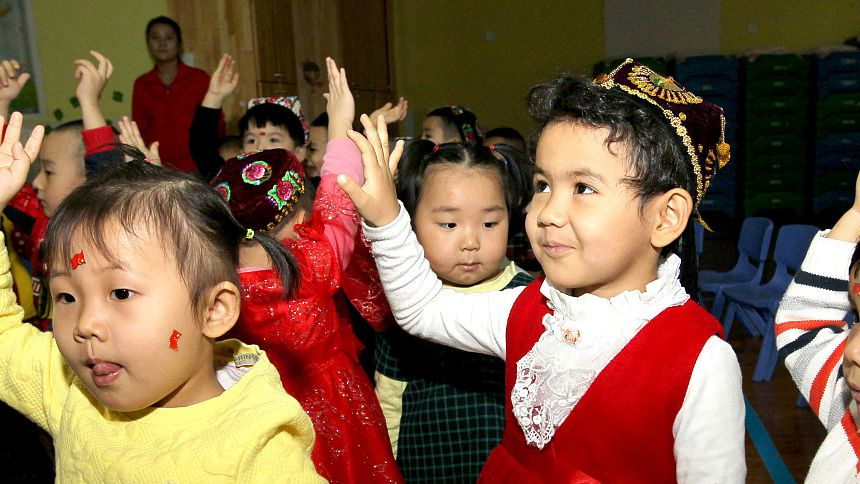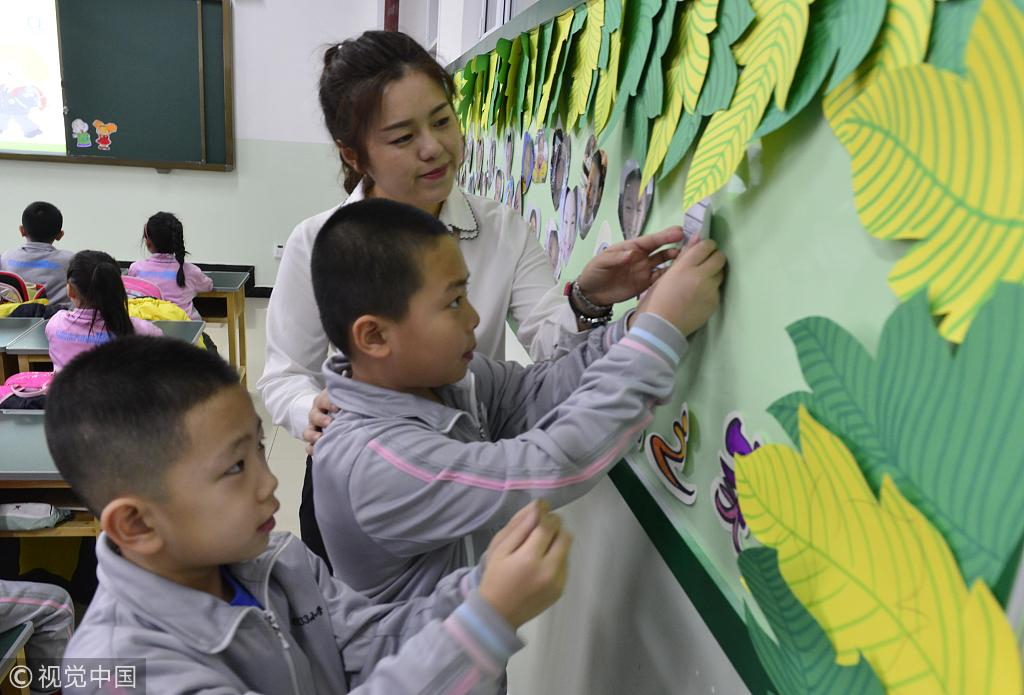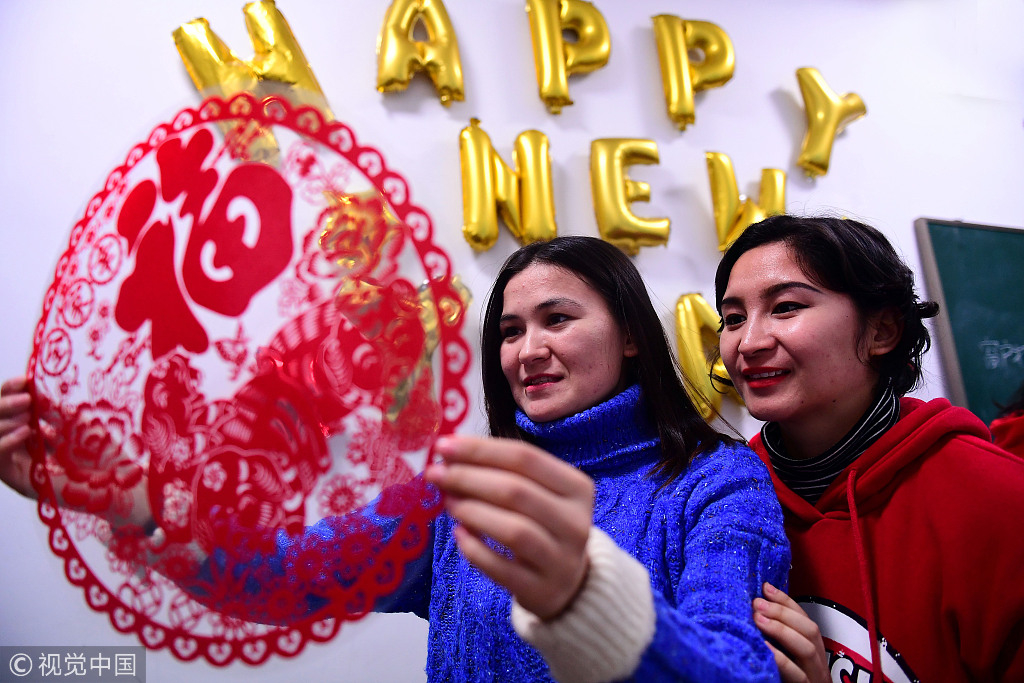
Asia Pacific
14:36, 14-Mar-2019
Senior diplomats to UN applaud Xinjiang's progress in human rights promotion
Updated
21:56, 14-Mar-2019
CGTN

Human rights promotion in China's Xinjiang Uygur Autonomous Region has been frequently talked about at the UN lately.
Without ideological prejudice and groundless accusations, some senior diplomats to the UN have all agreed that the Chinese government has made achievement in anti-terrorism, safeguarding religious freedom and conserving ethnic tradition.
At the end of last month, senior diplomats from permanent missions of eight countries to the UN Office at Geneva visited Xinjiang. The diplomats from Pakistan, Venezuela, Cuba, Egypt, Cambodia, Russia, Senegal, and Belarus, spoke with trainees at vocational education and training centers, teaching clerics and other members of the public during their visit.
Serigne Dieye, the minister counselor of the Permanent Mission of the Republic of Senegal to the UN Office at Geneva, said as a Muslim himself, he felt glad to see that the Chinese government has protected religious freedom well.

File photo of a primary school in Xinjiang Uygur Autonomous Region. /VCG Photo
File photo of a primary school in Xinjiang Uygur Autonomous Region. /VCG Photo
Nikita Zhukov, the deputy permanent representative of the Russia Federation to the UN Office at Geneva, said, "It is important to fight terrorism according to law, and the Chinese government has done so."
Terrorism and extremism sabotaged peace and caused great casualties in Xinjiang. Terrorism, in whatever form, shall not be forgiven, said Sam Ol Ney, permanent representative of Cambodia to the UN Office at Geneva.
Chinese delegates introduce Xinjiang's progress in Geneva
On Wednesday, Xinjiang related topics were also discussed in Geneva. Chinese delegates, attending a UN side-event there, introduced to foreign diplomats and delegates the progress in human rights promotion in Xinjiang.
As part of the 40th session of the UN Human Rights Council, the side-event was sponsored by China's Permanent Mission to the UN Office in Geneva (UNOG) and the China Society of Human Rights Studies.
Yu Jianhua, head of China's Mission to the UNOG, said at the side-event that today's Xinjiang enjoys faster development and greater stability than ever before, and all ethnic groups in the region have full protection for their economic, political, social, cultural, and environmental rights.
Yet for political purposes, some have spread rumors and told lies about what happens in Xinjiang in the hope of defaming China and the Chinese government. They are doomed to failure in the face of hard facts about Xinjiang's prosperity, development, stability and unity, Yu said.
Saying that the vocational education and training centers in Xinjiang are the right choice, the Chinese diplomat stressed that China would never allow terrorism and extremism to drag Xinjiang back or to take away what people have earned for a happy life.

Students originally from Xinjiang Uygur Autonomous Region celebrate Chinese New Year at Shenyang Agricultural University of northeast China, December 27, 2018. /VCG Photo
Students originally from Xinjiang Uygur Autonomous Region celebrate Chinese New Year at Shenyang Agricultural University of northeast China, December 27, 2018. /VCG Photo
As a Uygur scholar living and working in Xinjiang, Zuliyati Simayi, a professor from the School of Politics and Public Administration of Xinjiang University, said at the meeting that Xinjiang has been an inseparable part of China since ancient times and everyone there is a member of the Chinese nation.
The Uygur and other ethnic groups in Xinjiang have always been members of an intimate community, making Xinjiang a place of harmony among different religions and cultures, she said.
Born and raised in Xinjiang, Zhang Nan, a researcher at the Anti-Terrorism Law School of the Northwest University of Political Science and Law, introduced the Chinese policy of religious freedom at the meeting, and by giving examples illustrated the serious threat and harm of terrorism and extremism.
In this context, he said, it is fully necessary and justified for the Xinjiang government to take anti-terrorism and anti-extremist measures, including vocational education and training, to protect citizens' lives and property as well as their freedom of religious belief.
Li Changlin, a professor at the Southwest University of Political Science and Law, who has visited Xinjiang many times, said at the meeting that through continuous improvement of relevant legislation, China has set up an effective anti-terrorism legal system.
It is a basic principle upheld by China to fight terrorism according to law, protect human rights, forbid discrimination and address both the symptoms and root cause of terrorism, Li said.
He also stressed that the vocational education and training measures in Xinjiang are implemented according to legal procedures and are effective measures to eradicate the hotbed that breeds terrorism and extremism.
A number of foreign diplomats who visited Xinjiang last month also attended Wednesday's event. By introducing to the audience what they saw and heard in Xinjiang, they all mentioned their deep impression of the prosperity and stability there.
Nearly 200 diplomats from over 70 countries, officials from international organizations and representatives from relevant non-governmental organizations were present at the side-event.
Source(s): Xinhua News Agency

SITEMAP
Copyright © 2018 CGTN. Beijing ICP prepared NO.16065310-3
Copyright © 2018 CGTN. Beijing ICP prepared NO.16065310-3